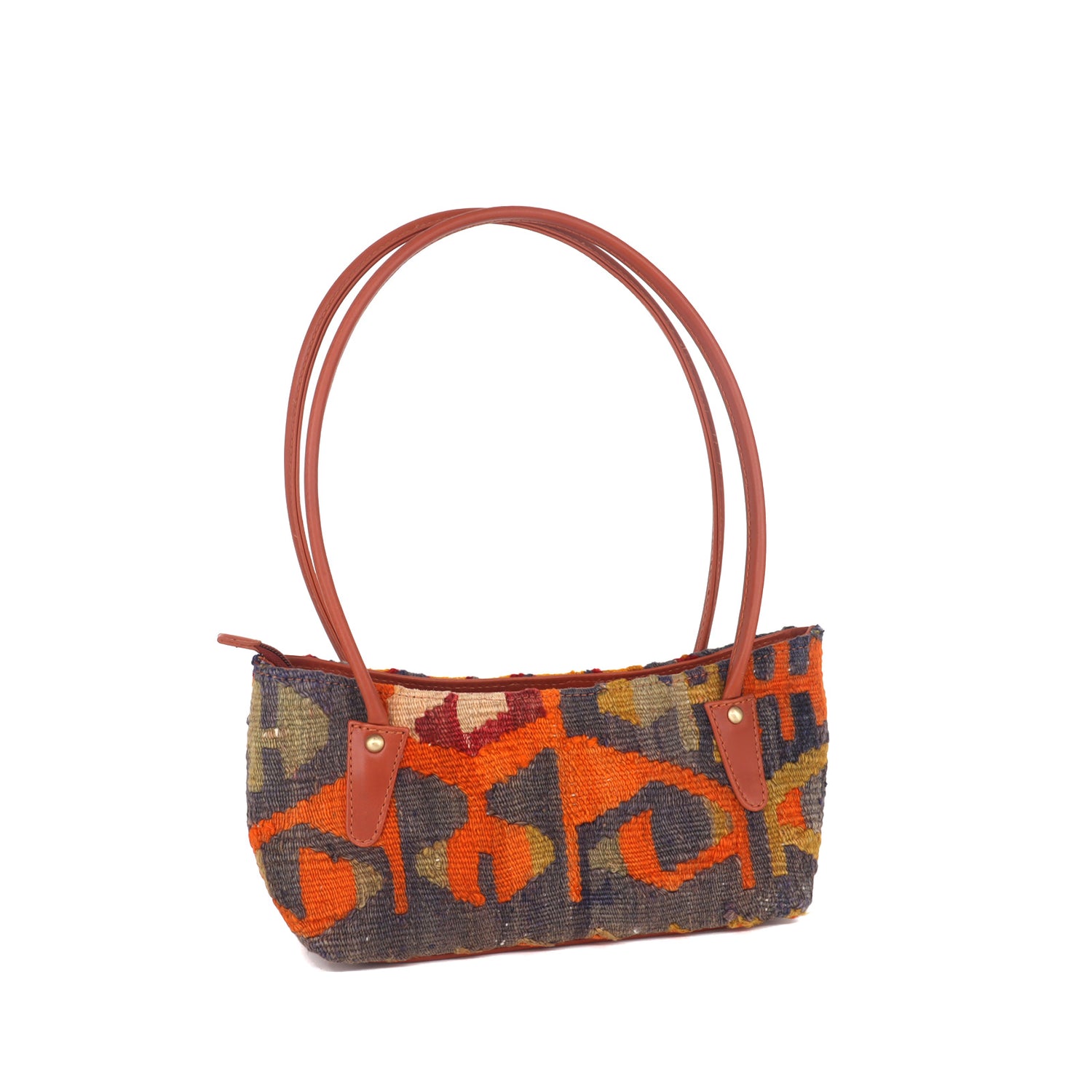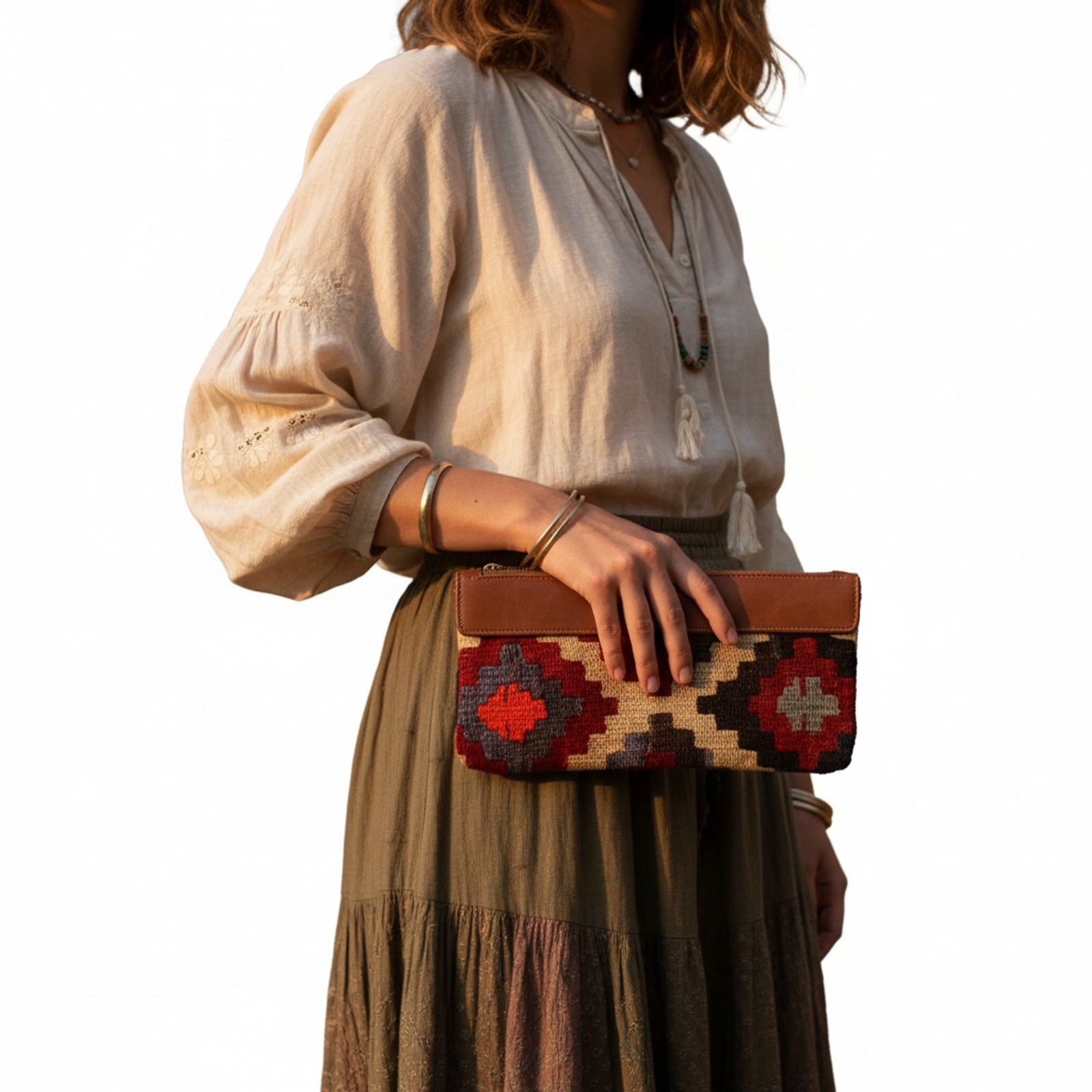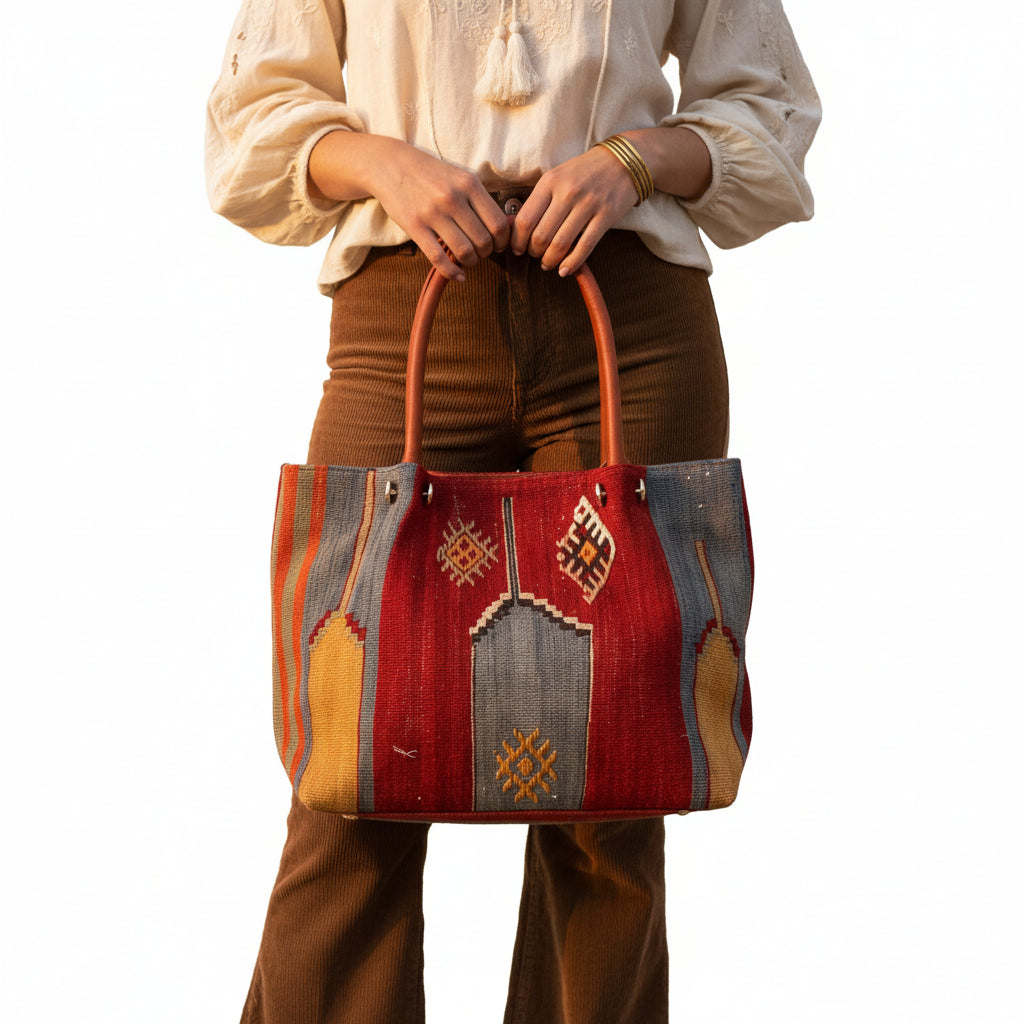How We Make Each Bag
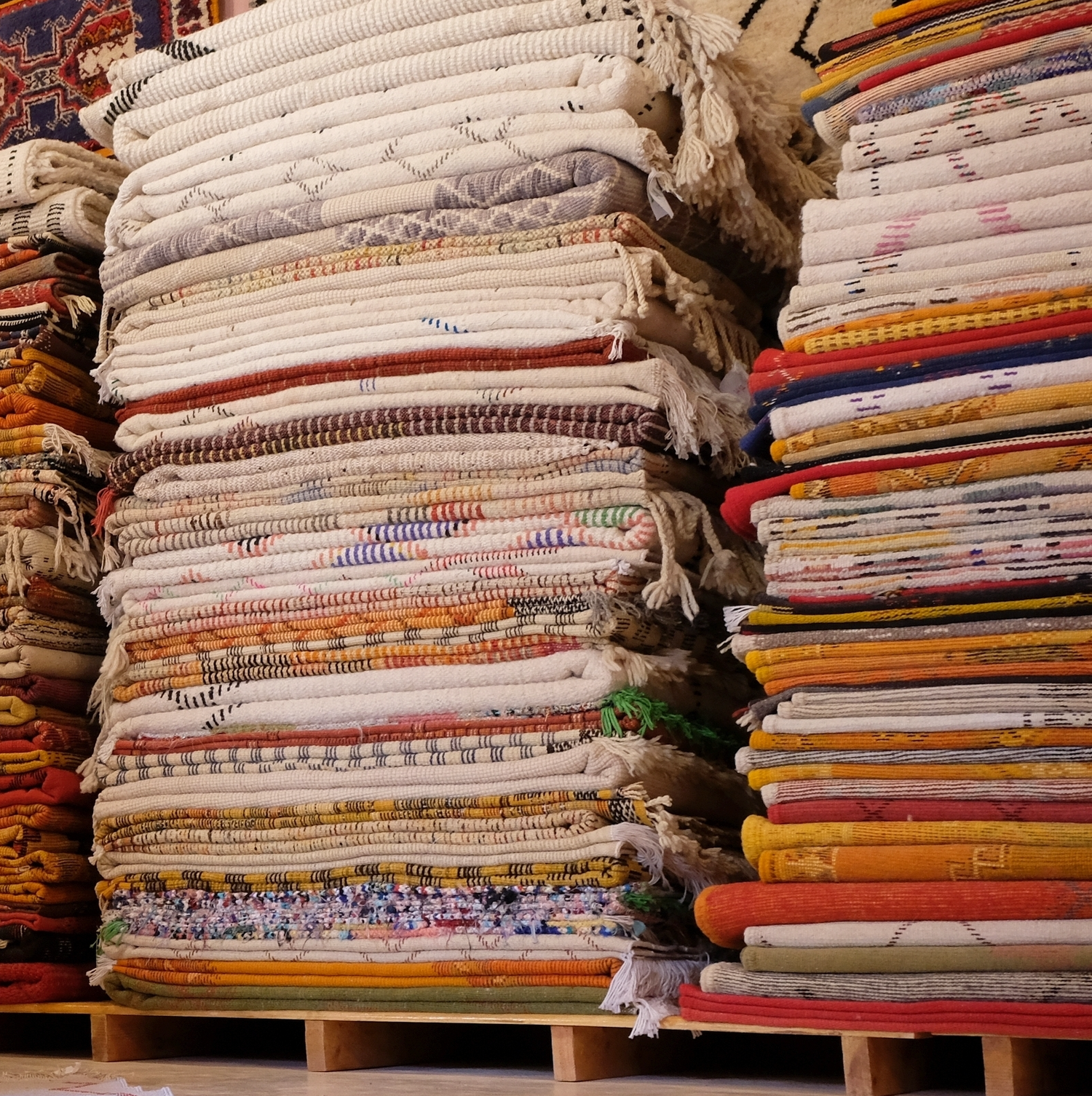
Sourcing Vintage Kilims
We begin by traveling through villages, markets, and small collectors across North Africa and the Middle East to source authentic, vintage kilims many between 40 and 90 years old.
Each textile is carefully inspected for its condition, weave quality, and the stories its patterns tell. We look for unique color compositions, heritage motifs, and weaves sturdy enough to live another life.
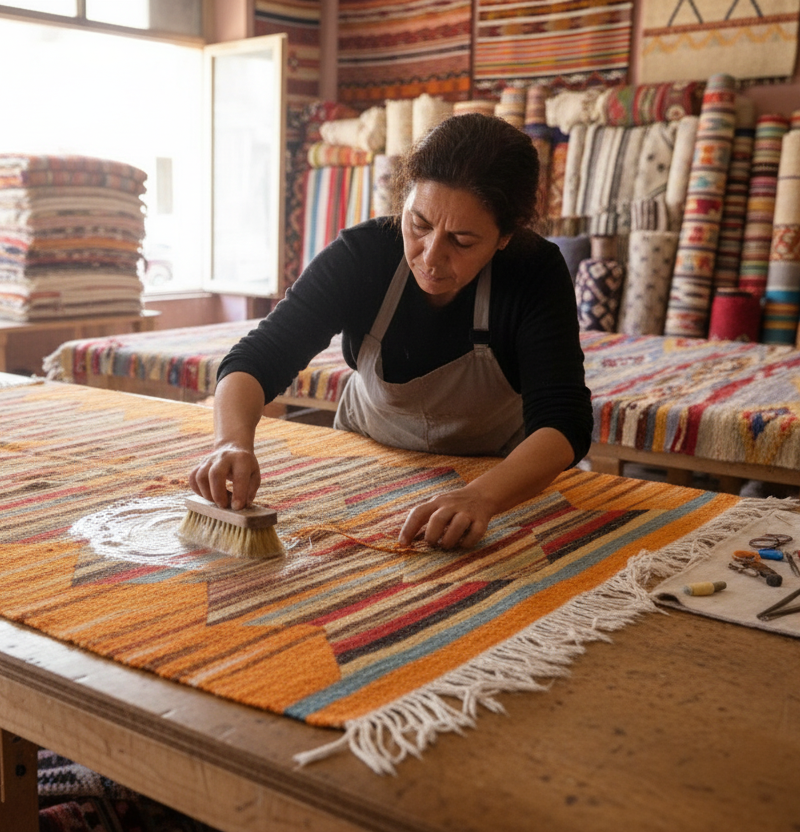
Cleaning & Restoring
Once sourced, the kilims are carefully cleaned and restored by hand to preserve their natural texture and vibrant hues.
Our artisans reinforce delicate weaves, mend worn edges, and prepare the fabric for its transformation.
Nothing is over-processed — we keep the soul of the material intact, because the charm of a Loom & Hide bag lies in its imperfections and authenticity.
Design & Pattern Mapping
Each kilim is laid out on a large table, and our team studies its pattern.
We don’t cut randomly — we map out sections that capture the most striking details, ensuring every bag has a balanced design.
This means every piece is planned individually, never mass-produced or repeated.
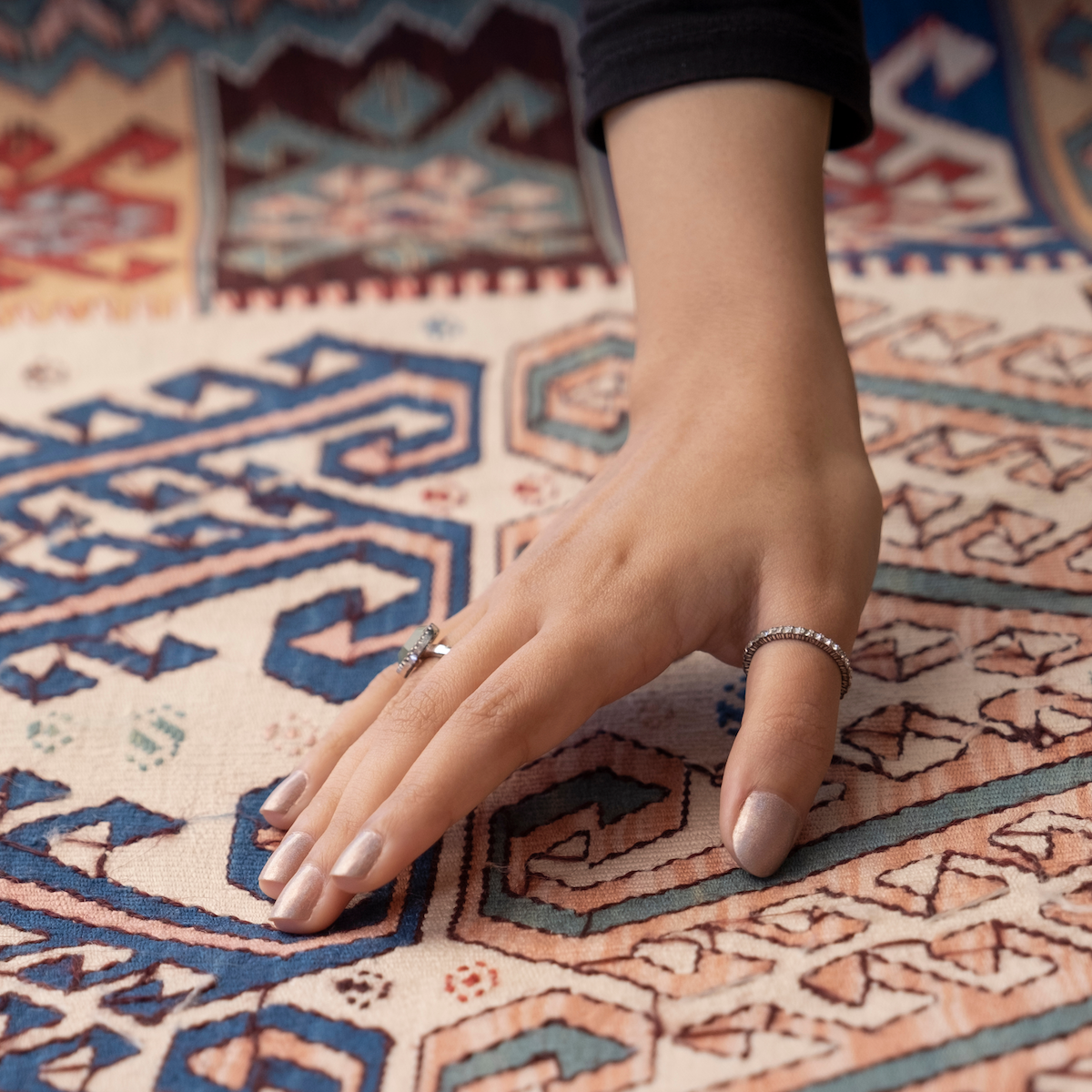
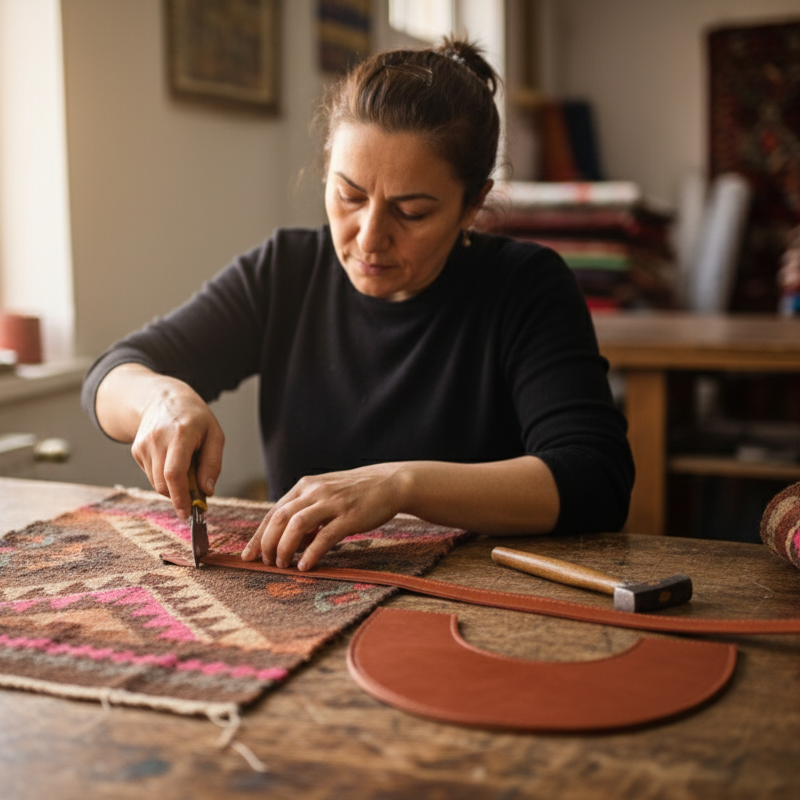
Stitching & Assembly
Our artisans cut both the leather and kilim by hand, aligning each section carefully to match the chosen pattern.
This stage defines the personality of the bag — whether bold and colorful or subtle and earthy.
Every bag is stitched by hand or on slow-speed machines, using waxed cotton thread for durability.
Edges are hand-burnished, leather is folded and shaped, and each panel is assembled with precision.
Quality Check & Packaging
Before it leaves the workshop, each piece undergoes a final inspection — every seam checked, every edge polished.
It’s then packed in a cotton dust bag with an authenticity card describing the kilim’s origin and approximate age.
The result is something that feels both timeless and personal — a one-of-one piece that carries history, craftsmanship, and the mark of the human hands that made it.
